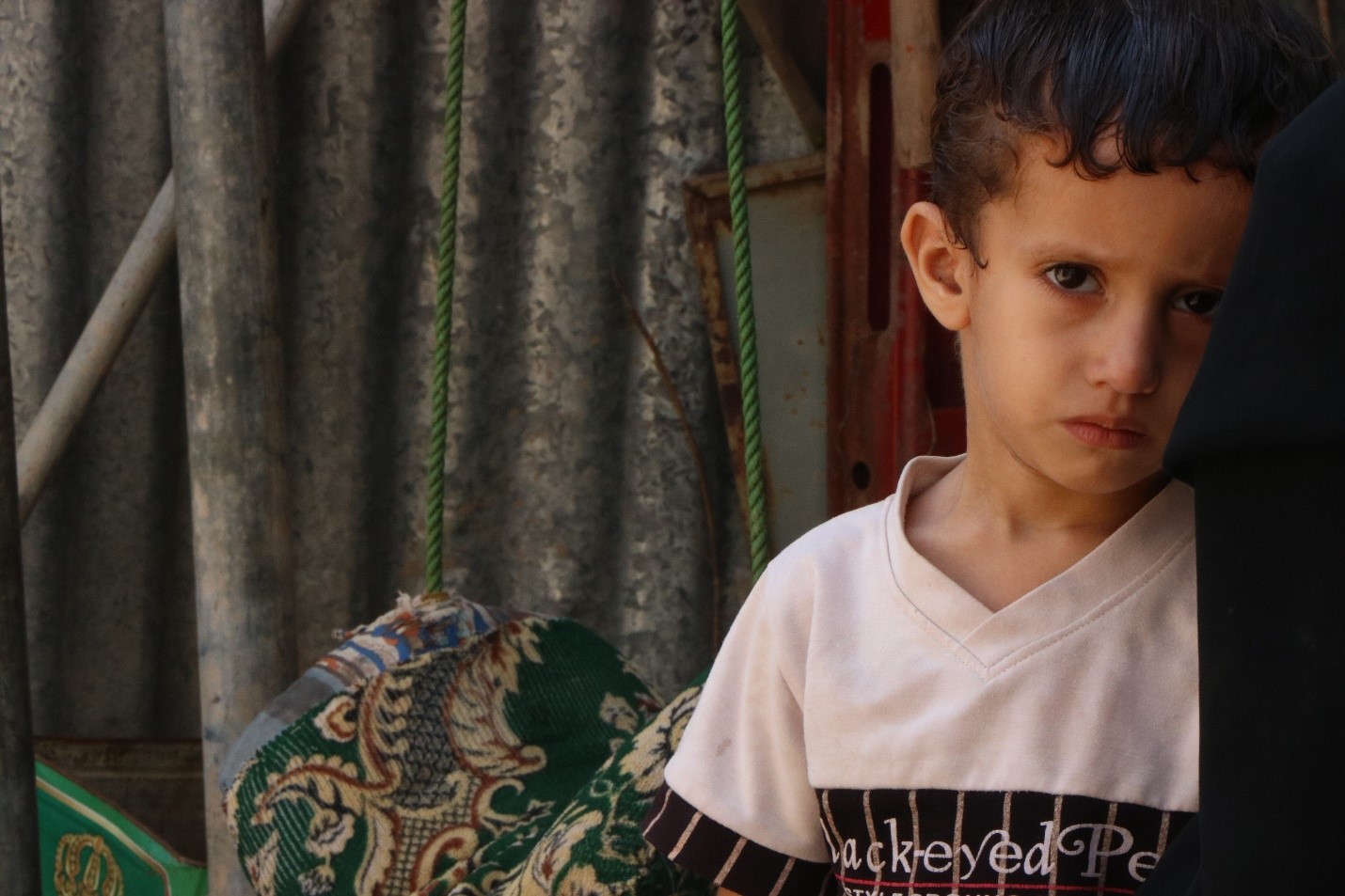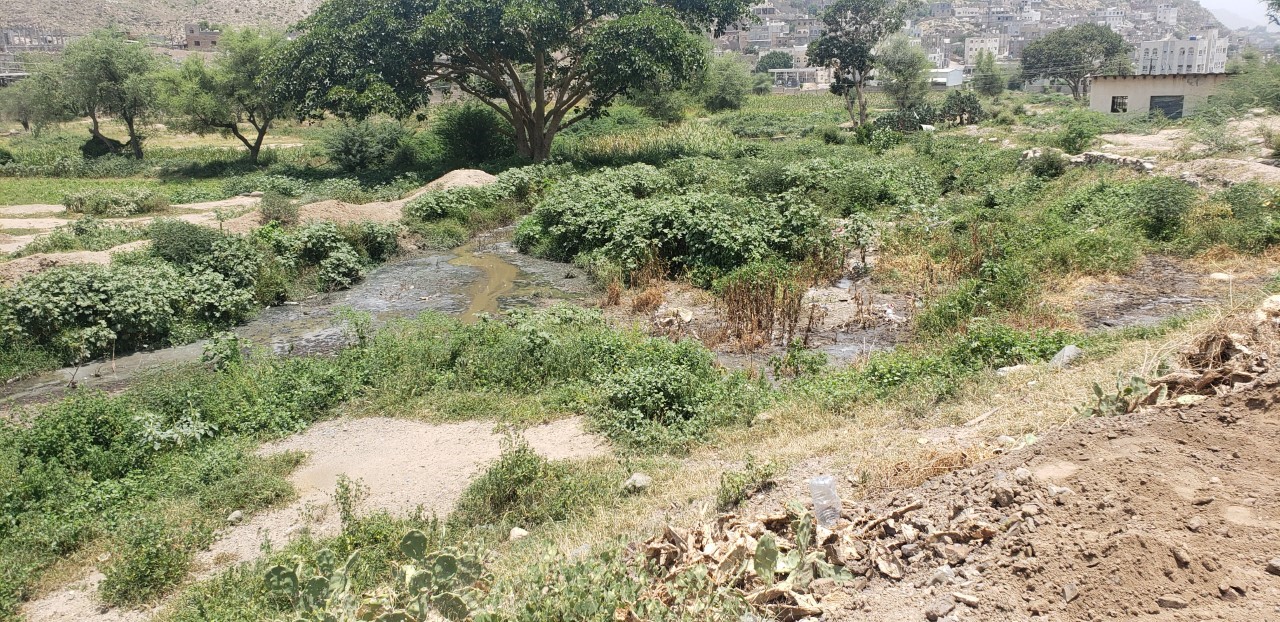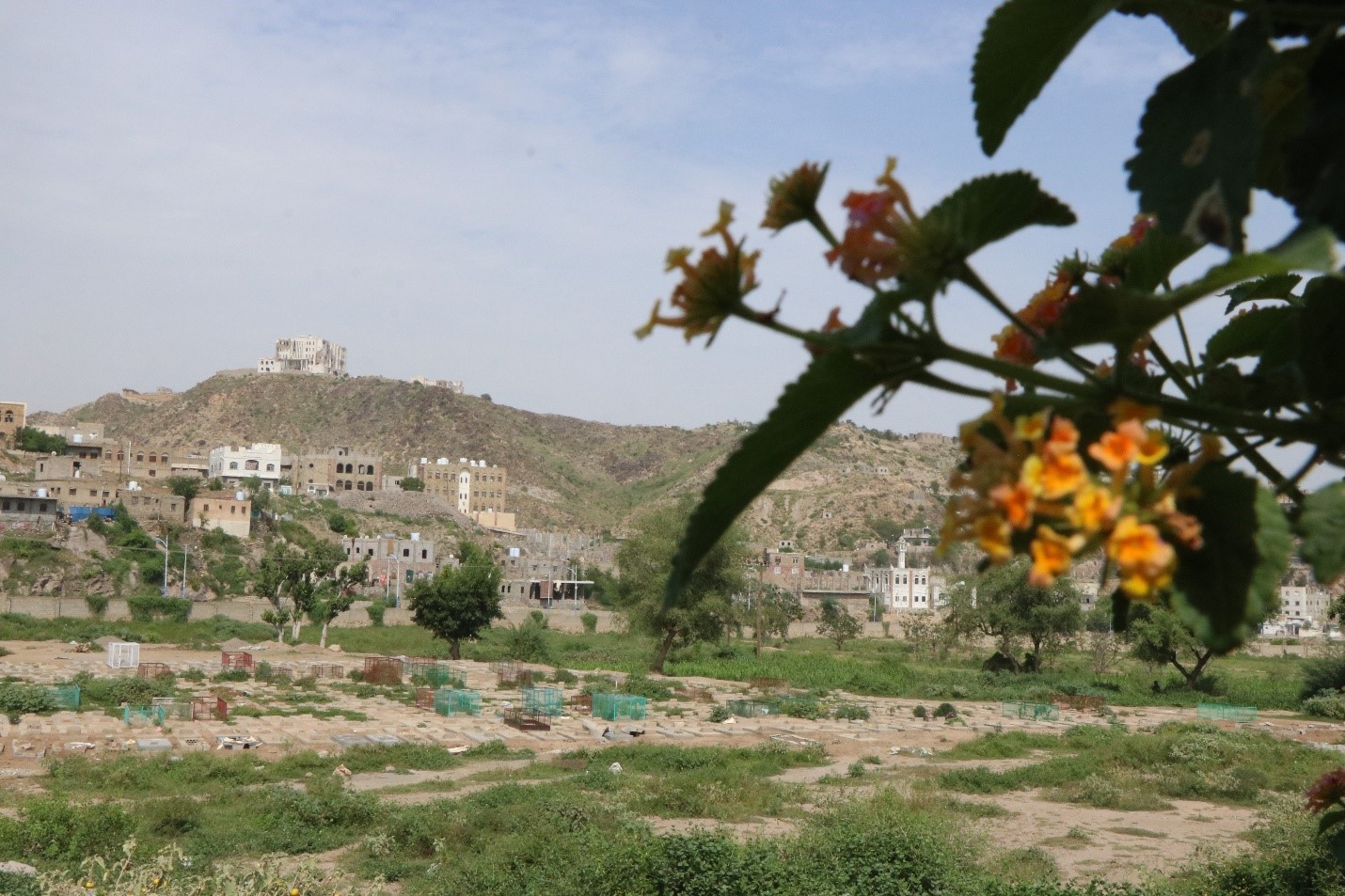“My name is Eman. I’m thirty years old and I have six children. Before the war, I used to live in Al Mekhlaf village of Yemen’s Taizz governorate. I had a peaceful life, raising my kids and hoping for a better future. But an escalation of fighting in my area forced us to make the difficult decision to flee our home in search of safety and we were displaced to Al Nahda area in Taizz. As we lack a stable income, we had to move into the only home we could afford – a small house with a zinc roof located near the Martyrs’ Cemetery.
“When people passed by my neighbourhood for a few minutes, they used to close their eyes and hold their breath. Only the poor displaced families who spent their days and nights right here understood the suffering. Our area suffered from a lack of sewage systems meaning that sewage water filled the street and the cemetery. Many families stopped visiting their loved ones in the cemetery and residents were afraid the cemetery be contaminated by the water – moving bacteria and viruses through the soil.


